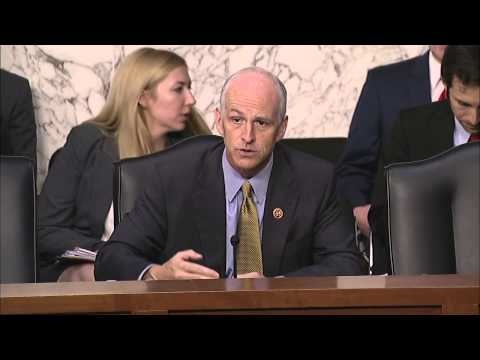 Yesterday, Hill staffer Vickie Plunkett made some mid-sized waves at the Association of the US Army’s winter conference when she noted that the military can legally close bases and arsenals without seeking congressional approval — and publicly urged the Army to “take your chances” and try it. This afternoon, we got this remarkably supportive reaction from the office of Rep. Adam Smith, the top Democrat on the House Armed Services Committee, which Plunkett happens to work for:
Yesterday, Hill staffer Vickie Plunkett made some mid-sized waves at the Association of the US Army’s winter conference when she noted that the military can legally close bases and arsenals without seeking congressional approval — and publicly urged the Army to “take your chances” and try it. This afternoon, we got this remarkably supportive reaction from the office of Rep. Adam Smith, the top Democrat on the House Armed Services Committee, which Plunkett happens to work for:
“Mr. Smith thinks that given the changing size and shape of our military force, the Department of Defense needs to be able to adjust its infrastructure to accommodate and reflect the shape of the force. It is his hope that Congress acts and these changes are made through the normal BRAC [Base Realignment And Closure] process. If Congress doesn’t act, then the strain on the Department will grow and it may be necessary for the Department to explore the possibility of realigning its bases under existing authorities.”
This is the first time we’ve heard Smith say something like this, and that’s significant.
Certainly, the Washington Democrat had made the unpopular case for BRAC before. Given how deep the 10-year schedule of budget cuts known as sequestration is biting into everything else, “how do you shrink the force by the amount we’re talking about and not do a BRAC?” he asked reporters earlier this month at a Defense Writers’ Group breakfast. At that event, Smith was withering in his critique of Republicans’ refusal to raise taxes, Democrats’ refusal to trim entitlements, and everyone’s refusal to cut constituent-pleasing spending on such things as military retirement benefits and bases.
But calling on Congress to close bases is one thing. Warning Congress that, if they don’t act, the Pentagon can close bases without them — that’s a step beyond.
Of course, Smith is a Democrat, so it’s easier for him than for others to take this step: He’s essentially telling the Republican majority in the House that it had better get a move on or else the Democratic administration might act unilaterally. Then House Republicans would need the Democratic-controlled Senate’s help to overturn the administration’s action, whereas a “no” vote in the House alone would be enough to kill a BRAC. Smith is not urging the executive branch to close bases on its own authority, as Plunkett did — and we have to emphasize Plunkett was speaking for herself, not for Smith or for the committee — but he’s definitely laying it on the table as a thinkable option.
Is this a trial balloon? Is this a bluff? If it’s not a bluff, is it politically insane?
Unilateral administration action to close bases without a BRAC process might well inspire fury in both the Republican-controlled House and the Democratic-controlled Senate, which have both rejected BRAC. A base closure provision probably wouldn’t even last long as part of a regular legislative bill. Consider how quickly Congress rejected the proposed reduction in military retiree’s cost-of-living adjustments (COLA) that was part of the Murray-Ryan budget deal from December.
But that’s not how this would go down.
The administration would be more likely to include something as controversial as unilateral base closures as part of its entire budget package. (Not the fiscal 2015 request due out in early March, which probably has no big surprises left unleaked; we’re presumably talking about 2016). It’s much easier for the administration to justify a cut of any kind in context of the whole budget, where it can say it’s saving the money for something else that some other constituency supports. And it’s hard for a deeply divided Congress to focus on and pull lose a single thread from the Bayeux Tapestry-sized budget request.
Of course, Congress can reject any part of the president’s budget that the majority of both chambers can agree to hate. Just look how the Hill kicked the Air Force’s teeth in in 2012 when it proposed major cuts to the Air National Guard — although the administration did end up getting some of the cuts it wanted, at a political price.
At the very least, putting unilateral base closures in the president’s 2016 request would be a bold gambit. It may seem politically crazy now — but then the budget battles keep getting crazier every year. But you’ve got a senior defense lawmaker making the case that closures are needed and a professional staff member making the point that the Pentagon has the authority. So it may not be crazy.
Pass a preemptive CR, deal with inflation and watch the debt limit: 3 tasks for Congress
John Ferrari and Elaine McCusker of AEI argue in this op-ed that Congress needs to act quickly to ensure American national security before getting bogged down in election season.


























